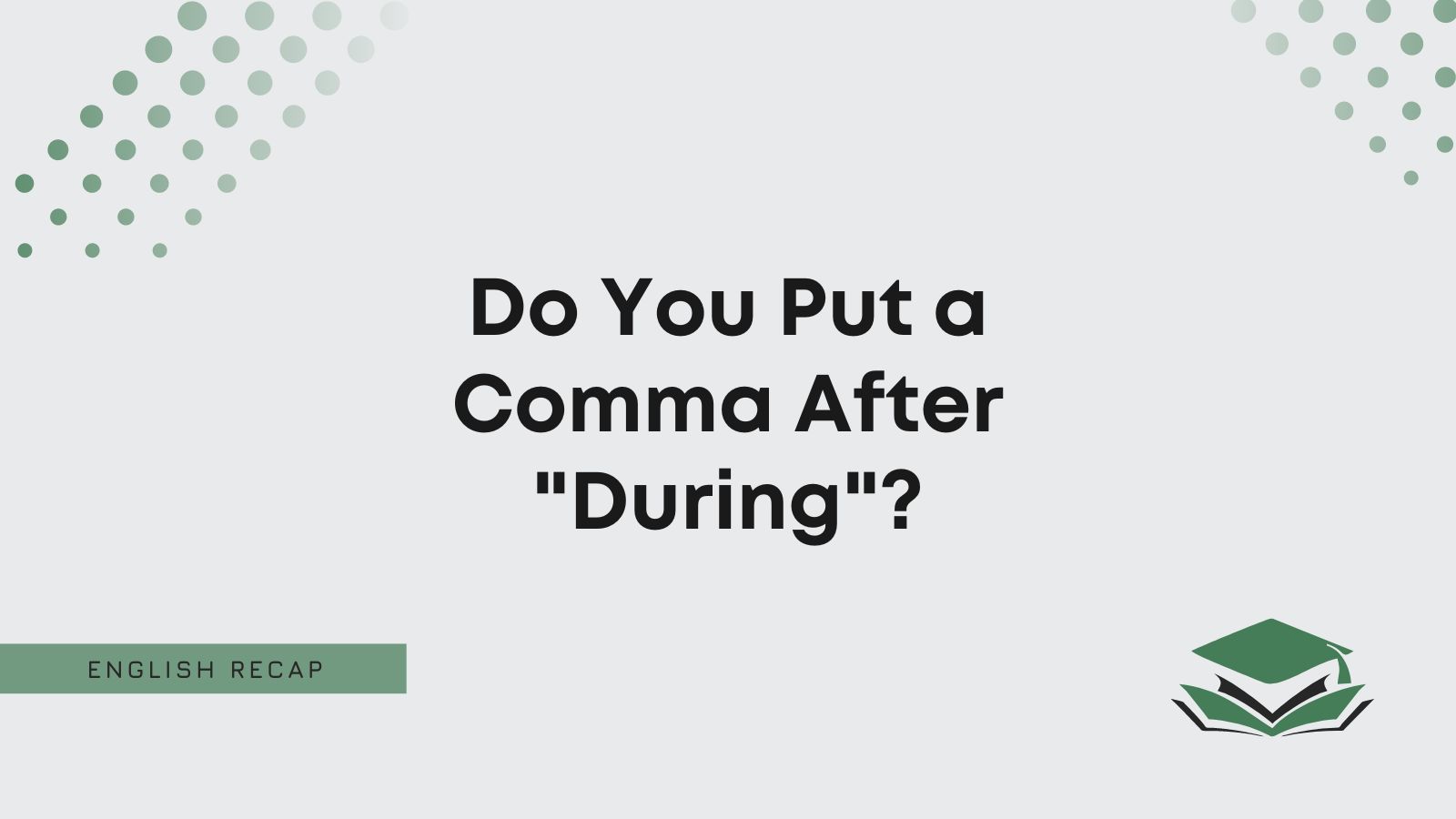Rule 1: You should put a comma at the end of “during clauses” when they start a sentence.
- Correct: During the meeting, there will be an opportunity for people to voice their concerns.
- Incorrect: During the meeting there will be an opportunity for people to voice their concerns.
Rule 2: You should never put a comma directly after the word “during.”
- Correct: You may cancel your subscription during this time.
- Incorrect: You may cancel your subscription during, this time.
Continue reading the rest of the article to find out more about using the word “during” with commas.
When to Use a Comma After “During”
When you need to decide when to use a comma after “during,” you should refer to Rule 1.
Rule 1: Use a comma after a “during phrase” when it starts the sentence or is non-essential.
You will never use a comma directly after the word “during.” However, you will sometimes need to use one at the end of “during clauses.”
A “during clause” can come in the middle of a sentence.
- Jack and I attended the meeting, during which he fell asleep, then we had to return to work.
Or it can come at the start of a sentence.
- During the evening, I like to spend my time in the garden.
When to Avoid a Comma After “During”
You should refer to Rule 3 to learn when you should avoid a comma after “during.”
Rule 2: You shouldn’t use a comma directly after “during” for any reason.
The word “during” is a preposition that refers to a duration of time. What comes after “during” will determine the period.
- During his life, he saw many places and did many things.
- I try to finish all my chores during the afternoon.
Conclusion
It is not necessary to put a comma directly after the word “during” because it is a preposition that links words. However, you may need to put a comma after a “during clause.” E.g., “During Saturday morning, I was eating breakfast with my husband.”

